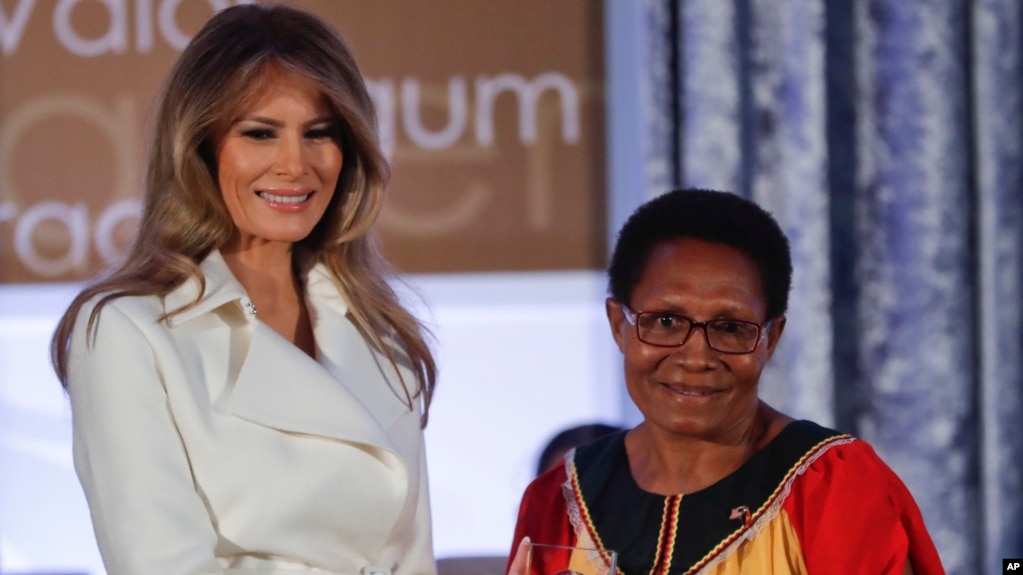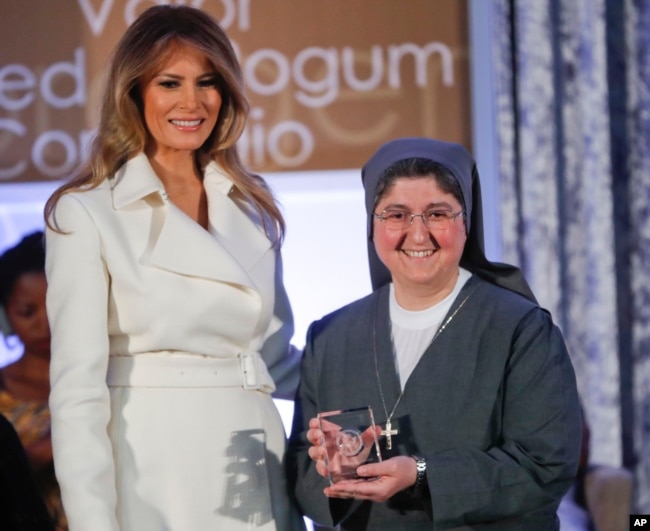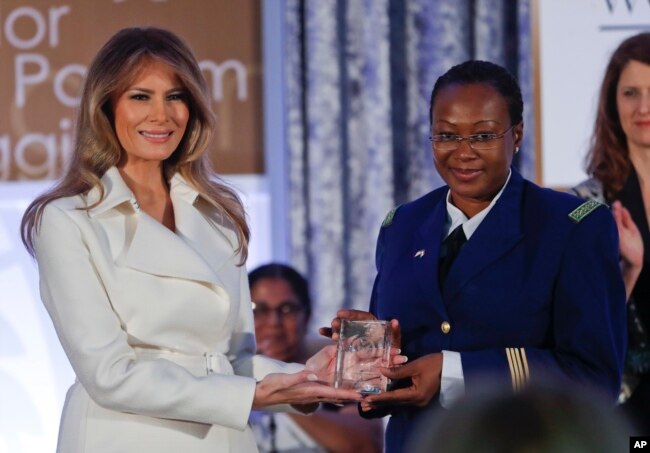“It is vital that women’s ideas and experiences equally influence the design and implementation of the innovation that shape our future societies,” the United Nations has declared and, if this is to be achieved, it will require industry leaders, start-ups, social entrepreneurs, gender equality activists and women innovators engaging with women.
In 2019, the focus is on innovative approaches to disrupt business as usual, remove structural barriers and ensure no girl or woman is left behind.
For the past 13 years, PNG Attitude has constantly encouraged Papua New Guinean girls and women to participate in dismantling social barriers through their writing
The blog’s activist attitude, trans-border outlook, issues orientation and daily publication has done much to accelerate progress for gender equality in PNG.
Furthermore, it has always had an emphasis on inclusion and participation.
Some of these activities have included the Crocodile Prize, Pukpuk Publications, fundraising to assist individual writers, the Paga Hill McKinnon Writers Fellowship, writers’ workshops in PNG, collaboration with Australian literary festivals, mentoring emerging writers, supporting writers’ groups and continuing engagement with Papua New Guinean writers through social media and personal contact.
For me - whether through reading its articles, engaging in dialogue, networking or delivering project activities - PNG Attitude has been the key digital source that influences my thinking and helps me frame strategies and solutions to enable me to move faster towards achieving gender equality and equity in PNG.
Much of this came to fruition in the tangibility and disruption of the My Walk to Equality project, which proved to be a great achievement by a disparate group of Papua New Guinean women assisted by the Australian men who had established the Crocodile Prize.
My Walk to Equality broke through the bonds of inertia and resistance, briefly blazed in glorious light, still haltingly moves forward and refuses to be vanquished,
But it was not followed up by any institutional reinforcement, probably because it was bottom-up and, despite what they claim, the big institutions much prefer top-down. ‘Not invented here’ is such a large constraint on voluntary effort – no matter how effective and worthy – being picked up by those who have the resources to make more of it.
But let me move on to those eleven Papua New Guinean women who, through PNG Attitude and the MWTE Project, I consider innovators in their national and international contributions to achieving gender equality.
Their efforts and actions don’t often receive the public attention, endorsement or investment they deserve, frequently because ‘not invented here’ applies even to the laudable and socially progressive goals of gender equality.
The syndrome emerges from two key constraints: the boundaries that knowledge must bridge as it transfers between two entities; and the irrational devaluation or rejection of external knowledge by an entity.
The women nominated here, taken as a group, would be a formidable force for change in Papua New Guinea but there has been no appetite to utilise them or their ideas in a systematic and coherent way to achieve goals that continue to prove so elusive to large and well-resourced institutions.
If you are an industry leader, game-changing start-up, social entrepreneur or gender equality activist, I encourage you to consider how your efforts, plans, budgets and investments could contribute more effectively to support these women in their work and so contribute to a future capable of accelerating progress towards gender equality in PNG.
 Dr Michelle Nayahamui Rooney
Dr Michelle Nayahamui Rooney
Dr Rooney is prolific in her written contributions to disseminate her scholarship of Papua New Guinean issues, particularly those affecting Manus society and its sad experience of hosting the Australia-funded euphemistically-designated regional processing centre for asylum seekers.
I admire Rooney’s proactive approach to translating her academic research in a manner that is inclusive, practical and encourages participation of the non-academic population through public access and online articles. Rooney’s regular publications have been extremely helpful to me in my contemplation of issues and in refining and expanding my own thinking about how girls and women are perceived, especially by non-Papua New Guineans.
I’ve spent considerable time thinking about her recent
offering in which the discussion references colonial discourse, its impact on Papua New Guineans engaging in self-representation and how this plays out in the present day between PNG and Australia through relations of gender and security.
Rooney’s ‘gender trap diplomacy’ best illuminates my own understanding, about which I have previously written: “Gender equality is impossible to achieve if the language, legislation, attitudes, and behaviours expressed by those who act or speak on behalf of Papua New Guinea women continue to reinforce doubt about facts of our assertions and thereby incapacitate our right to speak out.”
Now more than ever, Papua New Guinean girls and women need to play a significant role in demanding and directing authentic self-representation when engaging or aligning with the former colonial power Australia and more recent influences including China and the United States.
 Roxanne Aila
Roxanne Aila
Roxanne and I have a personal history that stretches back to our early primary school days at an international school in Port Moresby. It was a privilege but one that did not prove immune to life’s challenges in later years.
With much admiration, and in various spaces, I have sat alongside Roxanne as she has contributed to dialogue about her experience in managing and overcoming depression. As an ambassador for the Beyond Blue organisation, Roxanne is dedicated to dismantling stigma and increasing non-judgemental public dialogue in Australia and PNG about an individual’s mental health.
Coupled with her yoga teaching, speaking and participating in workplaces and at community events, and through her blog and social media activities, Roxanne shines the spotlight on messages of positive thinking, mindfulness and meditation to assist others.
Alurigo Ravuriso-Kali
Alurigo is easily one of one of the top people with whom I would like to spend time on a regular basis if we lived in closer proximity. Connected through the MWTE Project, a recent opportunity to finally meet in-person was short-lived on account of a shared commonality - fulfilling parental responsibilities - whilst pursuing personal goals and ambition.
Nevertheless, as a role model for living through Christian faith whilst managing the realities of family life and a career, Alurigo’s warmth, authenticity and grounded nature is affecting, as are her reflections in the anthology essay ‘A Culture of Family’.
Alurigo champions positive representation through writing. She opts for a narrative that focuses on Papua New Guineans living in urban PNG who are thoughtful and give consideration to how the everyday challenges may be eased to make life more manageable, safer and happier. A culture of offering solutions and sharing.
 Betty Wakia
Betty Wakia
Betty embodies the type of woman who understands the significance and necessity of proactively giving other PNG women a seat at the table when an opportunity presents itself. Truth be told, not being included and being denied access to influential platforms has been a major obstacle to the in-country impact of the MWTE Project.
Yet, Betty’s simple act of inviting us into her network saw our MWTE project come to wider attention and being nominated as the PNG country project for the United Nations Girls and Women’s Education Prize 2018. It was a welcome surprise, flawed only by PNG’s internet connectivity issues which got in the way of our preparation for the prize.
That said, the nomination demonstrated not only the advantages of teamwork in achieving a short-term goal as domestic and diaspora allies worked our way through UNESCO’s comprehensive online nomination process to ensure global attention was directed to PNG’s efforts in educating girls and women through indigenous literature.

 Pauline Mago-King and Leiao Gerega
Pauline Mago-King and Leiao Gerega
Pauline and Leiao are two journalists who have produced both creative and investigative writing informing the public about the status, progress and future directions of achieving gender equality in PNG.
Their approach encompasses perspectives from the female and male population in both urban and rural settings and interacting at the interface of government and non-government intervention. Leiao’s evocative poetry featured in the anthology extends to her print journalism and the project team recognised the potential of her written work by nominating her to present at last year’s Emerging Writers Festival in Australia, an application that was unfortunately unsuccessful.
Pauline, whilst reporting from New Zealand, extended an invitation for me to share my thoughts about the potential impact the APEC 2018 discussions would have on communities along the Kokoda Trail, especially girls and women. It was an opportune occasion during which I was able to convey what I had observed during my first trek of the Trail some months earlier, documented in the seven-part
Trail of Woe series in
PNG Attitude.
 Alphonse Huvi
Alphonse Huvi
Alphonse was recently warmly congratulated by the MWTE project team on the publication and distribution of the Devare Adventist High School Anthology, a self-initiated project. I had been contacted by Alphonse in the very early stages of planning and was delighted at her milestone achievement and the efforts of students in producing the book.
In a parallel effort to her MWTE contribution, My Challenging Life, Alphonse had limited resources but with incredible supply hard work, effective communication and enthusiasm delivered a near-impossible feat in an environment where publishing indigenous literature is not considered to be an important priority.

 Theresa Meki and Tania Basiou
Theresa Meki and Tania Basiou
Theresa and Tania have inspired audiences in their advocacy for gender-equality through film and photography respectively. Theresa’s collaboration with a team of writers, actors, producers, directors and support crew saw her contribute to the production of
Aliko and Ambai. Like Betty Wakia, she invited me into her network providing the opportunity to both better understand her role in the project and to interact with the film’s director, Dr Mark Eby, to whom I conveyed my
positive impressions of the film.
Aliko and Ambai demonstrated to me the potential of Papua New Guinean women in film, especially as screenwriters, to engage and impact minds of all ages with realistic portrayals about co-existing respectfully, peacefully and productively in the interests of a progressive nation.
Tania is of course well known as the cover designer and contributing author for the MWTE anthology. She is a splendid photographer with a stellar portfolio produced as a result of her private and collaborative project work. The images are distinctive and offer audiences an authentic experience of how a Papua New Guinean woman perceives evolving PNG communities and other aspects of the world around her.
 Mary Kini
Mary Kini
Mary Kini passionately and articulately conveyed her human rights advocacy when
presenting at the Women of Wonder Festival in Brisbane last year. Mary engaged audience members (including me) as she described the hard work, sadness and hostility of offering safe spaces, temporary shelter and referral support for girls and women fleeing unsafe, hostile and often life-threatening situations in their communities, including sorcery accusation related violence.
There’s no sense in which Mary portrayed victimhood but she did clearly get across the problems of delivering help because of communication delays compounded by strained and limited resources. What Mary refrained from elaborating, but which was evident, was the self-sacrifice involved and the threats and danger involved in the predominantly, voluntary role of helping Papua New Guineans who are in trouble.
 Elvina Ogil
Elvina Ogil
Elvina is the creator and host of the first Papua New Guinean feminist podcast, Who Asked Her, which first aired (via Soundcloud) in May 2018 and has produced its sixth one-hour episode. These conversations offer the thoughts, opinions and argument of the host and invited (predominantly) Papua New Guinean guests who discuss on a wide-range of issues which have included feminism, cultural appropriation, abortion and neo colonialism.
Who Asked Her is refreshing, informative and thought-provoking and has gained a legion of listeners with the first episode receiving 1,300 listens (excluding downloads) and counting. Many people are eager to join the conversation and offer their views about contemporary PNG society via social media.
Speaking to ABC radio’s Tahlea Aualiitia of Pacific Mornings program on International Women’s Day, Elvina said her self-funded podcast has a wide-reach including into parts of rural PNG and observed that listeners have commended her initiative to encourage more participation, especially of girls and women, in PNG’s public conversation.
 Rashmii Amoah Bell by Keith Jackson
Rashmii Amoah Bell by Keith Jackson
Rashmii is a perceptive essayist, a deep intellectual curiosity in hot pursuit of further learning and a wanna-do can-do administrator. The trio don’t often travel in the same carriage. Especially not when there are young school children and related matters constituting the complexities of daily life.
Things become even tougher when good intentions and hard work bump into the everyday cynicism of people on the make and scenarios designed to be zero sum games. As I merge with old age, I have learned to pick the leaners and users. But this does have to be learned. And the process means bumping along some very rocky roads on the way.
It was Rashmii who something less than three years ago decided she’d like to produce a really big event for International Women’s Day 2017 in Papua New Guinea. An anthology of Papua New Guinean women’s writing no less. Never been done before. No templates or precedents. No structure whatsoever. Three months, in publishing is as good as no time at all. And there was no money. But there was a burning desire to succeed.
It happened. And it was the nearest thing to a miracle you’re ever likely to see on God’s good earth. The book itself was a triumph of writing and design. The two launches (in Port Moresby and Brisbane) were marvellous and memorable. The book was distributed in its hundreds, then thousands.
Then Rashmii pressed on to make her idea more than a book, to make it a locus of movement towards equality for girls and women. And that took guts as well as effort, and meant pushing against the forces of exploitation, envy and disdain that always arise at times like this. Rashmii doesn’t suffer fools gladly, and there were plenty of them.
Some two years later, My Walk to Equality can be seen as a triumphal moment. It could also have started a triumphal movement but it did not because there were more leaners than lifters, more slackers than backers and because it was “not invented here” but by a single mum who had a grand idea and the ambition and drive to see it happen.
There’s a lot more to this story, of course, there always is. There were more people, more incidents, more bumpy roads. And there will be a lot more to come. Papua New Guinea and Australia have not heard the last of Rashmii Bell. They’ve hardly heard the beginning.
A smart institution – not one dwelling in its own vainglory or fear of competitors, but one that is smart and open – would understand that to succeed it must adopt the best of breed, which often lies way beyond its own capabilities.
That’s where Rashmii is - along with many other women like those she has featured here.






